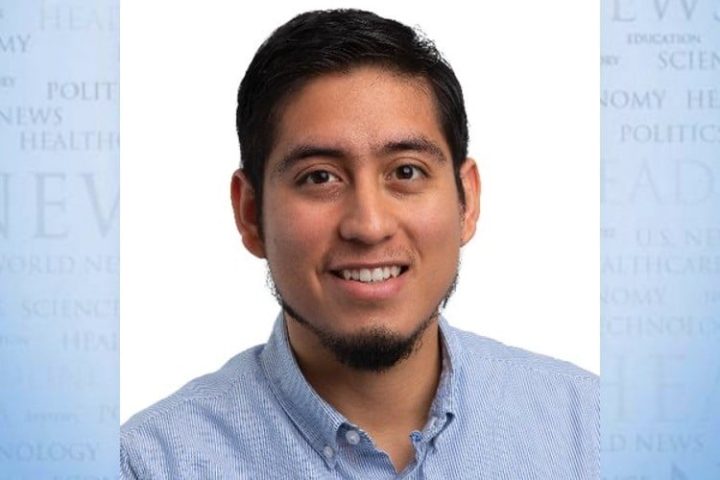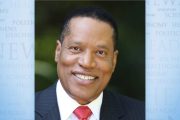
If your enemy desperately doesn’t want you to do something, you can be confident it’s because he knows it would be detrimental to him. The logical conclusion is to pursue that course — if you truly want to win.
Those of the Right, particularly the dissident Right, should make careful note of this principle, especially as it pertains to one of the Left’s chief objections: The influence of established religion.
Leftists love to go on and on about “freedom from religion” and the “separation of church and state,” neither of which has any basis in the Constitution.
Those leftists who do find themselves having to, if not embrace Christianity, at least not speak ill of it, will often use the dubious talking point of “Jesus didn’t create a church” (something easily disproved by even a cursory reading of the New Testament) and argue that “it’s better to be spiritual than religious. What Jesus taught was good, but institutionalized religion is just social control.”
Those leftists who can comfortably be more overt in their anti-Christian beliefs call for the stripping away of tax-exemption protections from churches, and see it as the grossest offense whenever churches organize in a way that smacks of politicking (unless of course, it’s the left-leaning churches that drive Democratic voter turnout in elections).
All of this prompts the question: Why?
Why are leftists so opposed to organized Christianity? To churches, church attendance, and the involvement of churches in public life, including in politics?
This author has gone over the philosophical and theological reasons before. To briefly summarize, Marxism (and all its derivatives) is a false religion that was deliberately created to destroy and replace Christianity. Thus, socialism and Christianity are naturally opposed and irreconcilable.
But from the perspective of political power play, there is another reason the Left opposes the Church: organized religion has always been a source of power in society, one that challenges and serves as a check on the power of government. As a result, in the leftist quest for power, they must either take over the Church or neutralize it.
Remember, the Left wants total power. Now, the chief instrument of political power we normally think of in our modern understanding of the state is the government — and naturally, the Left is doing all they can to totally control the government.
But society is dynamic, and within any society anywhere at any point in history, there are always various power centers, not just within government, but outside of it.
Businesses wield power. Labor unions wield power. Universities wield power. And churches wield power.
The power of a church comes not only from the influence it has on its members, but also by reason of its numbers and organization.
You see, there are different means of political power, but money and manpower are two of the most important. A rich oligarch such as George Soros has power because of his money. A labor union has power because it brings together and organizes a large number of people who individually would not have much power.
Throughout history, churches have been able to command both money and numbers, and thereby exercise, or have the potential to exercise, immense power in a society.
One of the most important and obvious examples is the Catholic Church, particularly during its heyday in the Middle Ages. In any given European nation, the Church’s dominant role in society allowed it to have a major say in politics — often to the chagrin of the rulers.
This power allowed the Church — along with other power players such as guilds, merchants, bankers, and the nobility — to check the power of the monarch and prevent autocratic rule by the king.
The natural strategy of the monarchs who wished to amass greater power for themselves was to find ways to eliminate or at least limit the power of these other institutions. There are many cases, but one of the most glaring is Henry VIII bypassing the Catholic Church’s restraints by creating the Church of England and making himself the head of it. In that example, the government rid itself of the rival power of the Church by assuming the Church’s power for itself, making Henry and all future monarchs the leaders of the Church.
Leftists today are trying to do the same thing. They want church attendance in America to go down because they know that organized Christianity is a threat to their power. American history has shown how influential churches can be for accomplishing social and political change; the War for Independence, after all, was heavily supported by patriot pastors leading their congregations in the cause of liberty.
To reclaim this power, Christians in America must not only revive their faith and band together in a reinvigorated religious life; they must cast aside one of the chief instruments by which the government is limiting the Church’s rightful role in public life: The IRS.
While it is clearly unconstitutional for the government to place limits on churches’ political speech, churches nevertheless should stop allowing themselves to take the bait of tax deductible donations. Currently, churches in the U.S. must register as 501(c)(3) organizations so that their donations will be tax deductible. But this designation also means they’re not allowed to speak freely on political matters, let they risk losing their tax status.
Churches could, instead, choose to organize as 501(c)(4) organizations. While they would not be able to do tax deductible donations under this status, they would not have their hands tied politically; they could openly promote candidates and causes, give endorsements, and even use their funds to do independent expenditures for political races (so long as such expenditures account for less than half of their spending).
Alternatively, churches could simply organize informally without any tax status. It might make it a bit more challenging to get things done, but they would preserve their freedom of speech.
Ultimately, the Church in America must break free from the restraints it is willingly subjecting itself to, and openly join the fight for God and country.




